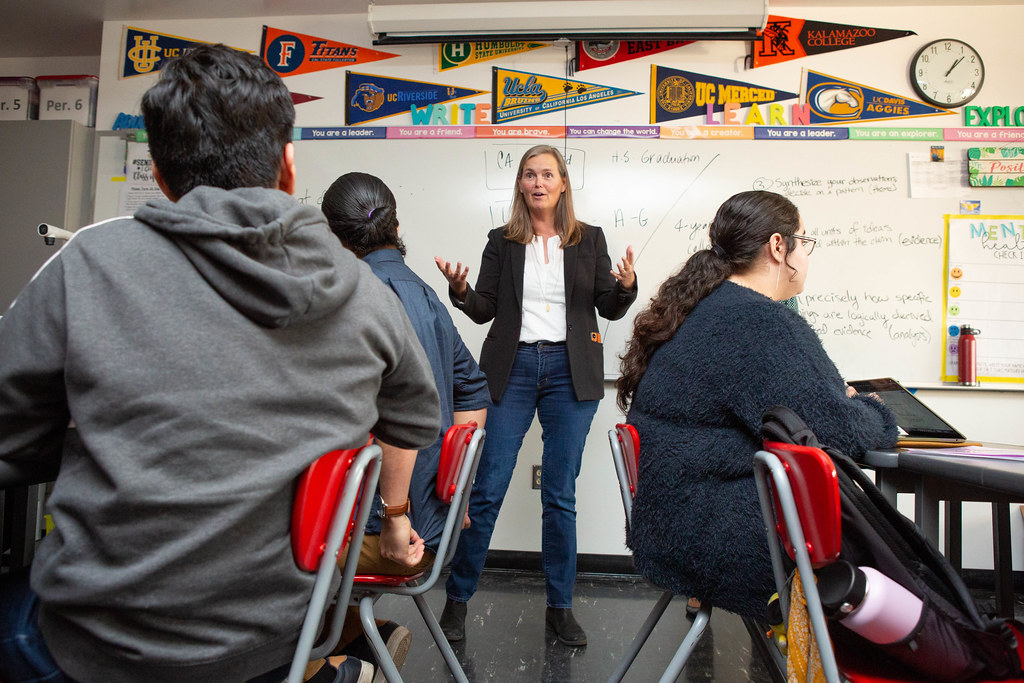Cooking is more important than calculus.
How heavily stressed are essential life skills in our schools? Many of us know that sexual education in the United States is laughable, and in states like Utah it’s really pathetic. All the state requires is one health class with a small segment dedicated towards sexual education, with a few tiny restrictions, including: the advocacy of homosexuality or the advocacy of contraceptive methods or devices. Additionally, teachers are not required to cover condom or birth control use. In my own experience, my health class dedicated two days to sexual education out of an entire semester. Biology class turned out to be more informative.
And these gaps in knowledge have real consequences. An estimated one in four women who are sexually active in high school contract an STI. Our laws actually promote a kind of homophobia by keeping the subject obscured. And while I find this matter extremely prevalent, it’s really only a portion of the overall problem in our school system.
It’s too much to say that our problems with obesity and poverty are the result of our education system. But I see a serious problem in how much more time and resources we spend teaching students mathematics than cooking. I’m not saying you shouldn’t learn calculus, but there are a number of skills that are far more important and immediately necessary once we get out of high school. Yet, the majority of these skills are taught as secondary to STEM education. The lack of classes on money handling and food are likely large contributors to poverty and obesity.
My own experience with classes that taught real, applicable life skills was actually a fairly decent one; however, it was almost entirely voluntary. My high school did not mandate any classes on cooking or finance. What took priority was English, science and math. And that’s how it’s been from the very beginning. School is for reading, writing, math, science and possibly the arts. The rest is up to your parents to teach you. It’s an incredible narrowing of the creative capacity for any student. What exactly makes some of these more essential than cooking? It’s because they’re directly related to the SAT and ACT testing. The STEM education does not benefit students so much as it does the school system. It makes it easier to control which classes are large and small, which and how many teachers to hire, and how to divvy up the student body.
Imagine there was no system in place, and you could take any class you wanted to. While math classes might look particularly empty, something like ceramics might have massive class sizes. The problem with this is the changes would be too radical. The mass hiring of certain teachers one year only to have few students the next would cause rifts, and the school system would struggle to find teachers.
A general, structured education also greatly benefits the college system, as students come out of high school with little to no specialization in a certain field, carrying only the basics. College is made to appear essential to students who want a job in architecture, cooking or teaching. How often have you heard the cry, “When am I gonna use algebra if I become x?” Though it’s a somewhat shallow point, it does reveal a deeper anxiety among all students: the feeling of wasted time.
We make calculus seem more essential than cooking or balancing a checkbook. Even in college this still happens. After we’ve gone through 12 years of math classes, the U still wants to drive mathematics education. But by then that information has appeared totally useless to us. We’ve received a general education over the past 12 years. And throughout all that time STEM was the major point, not reading, writing, cooking, hiking, holiday planning or fishing. Rather than make pre-calc a necessary prerequisite for graduating, why not consider the problems that plague the U.S. today when deciding what’s necessary and what’s extracurricular? In the U.S., 34.9 percent of adults suffer from obesity and nine percent of the nation has diabetes. How many students constantly eat fast food simply because they’re convinced it’s cheaper than cooking? At best we come out of high school as naive consumers. At the very least, our education should make us smart shoppers.






















Colin Young • Jan 13, 2016 at 1:33 pm
Dear Jack,
In paragraph 3, you say school prioritizes “English, science and math,” while in your final paragraph you state that the main point of schooling has been math and science and NOT reading and writing. Is English not reading and writing these days?
You list “cooking, hiking, holiday planning or fishing” as important skills with which we receive no education. I would debate that any of these are important. In today’s society, I can get a healthy, pre-prepared meal every day of the week without ever cooking. As for hiking, holiday planning, and fishing, we call those recreational activities. Mostly, because they aren’t essential. To live your life, you do not have to hike or fish. As a matter of fact, I have never been fishing and I have managed to, somehow, live a fulfilling life. It seems that you’re just sad that school isn’t teaching you the things YOU want to do.
As for math, if you can’t balance a checkbook you shouldn’t have ever made it to calculus. Hint: money in – money spent = your remaining money. Make sure your money spent, is never bigger than your money in! Do people who aren’t going to be engineers/mathematicians need to take calculus? Probably not. And the vast majority of people don’t take it, so I am not really sure what your concern is. The highest math I was ever “required” to take was pre-calculus, which gives a person a solid math background and ability to understand how to compute things like interest from loans and mortgage payments (or as we call it, “finance”). TOTAL waste of time, right?
Science is hard and increasing complex. In the United States, we publicly fund science, meaning we require the cooperation and participation from non-scientists to continue to make breakthroughs. By having a scientifically versed populace, we can continue to work together more efficiently to better society. Plus, from a science education, you get the added benefit of being able think things through and to understand things about the world.
I fully agree with you on health, however. Our health education is pathetic.
Finally, you know what I have never said in my life: “I wish I didn’t know something about X.” I find myself constantly wishing I knew more about everything. Every detail I find out about something, the more rewarded I feel. We live in a beautiful, complex world full of science, math, and literature. I have never regretted being able to join in conversations about any number of topics be they science, John Steinbeck’s work, or Fallout 4. The more I know about everything, the more interesting, engaging and effective person I become. If you can’t see the value in learning or in math and science, then that is on you. There is tremendous value there, if you care to look.
Sincerely,
Colin Young
PhD Candidate – Chemical Engineering